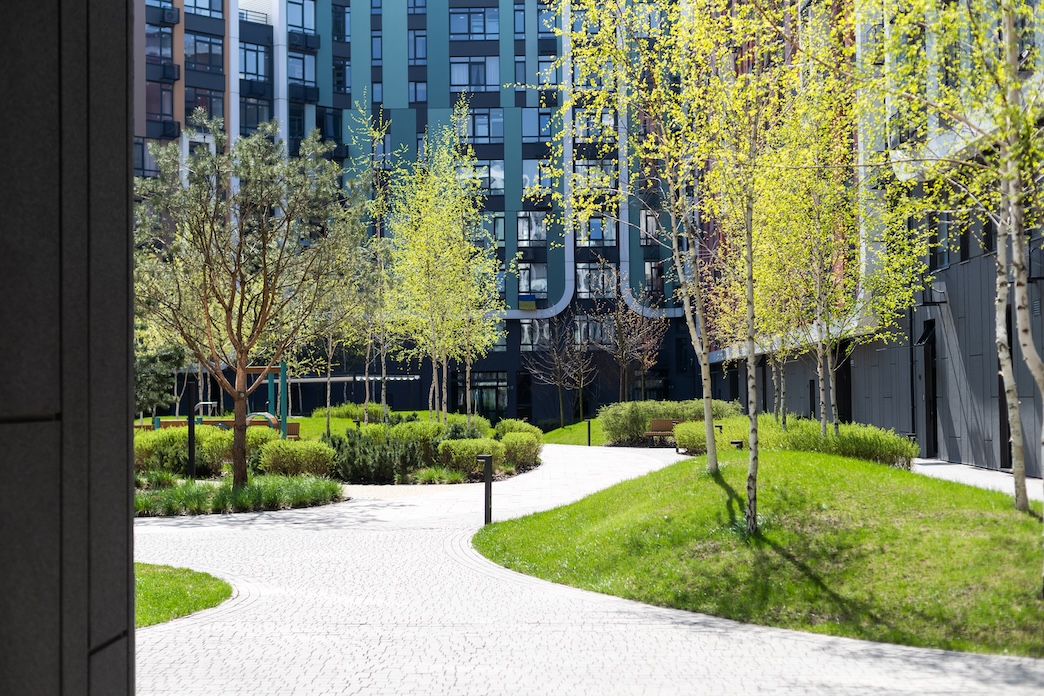In the ever-evolving landscape of public housing, the push towards sustainability has become more than just a trend—it’s a necessity. The transition towards eco-friendly practices not only holds the promise of a healthier environment but also offers tangible benefits for tenants, from reduced utility costs to improved living conditions. The Inspection Group, with its deep-rooted commitment to enhancing housing standards, delves into the practicalities of embedding sustainability in public housing frameworks.
Sustainability in Public Housing: The Path Forward
The journey towards sustainable public housing begins with the adoption of green technologies and innovations. Solar panels, for instance, offer a renewable energy source that can significantly reduce dependence on non-renewable energy and lower utility bills. Energy-efficient appliances and LED lighting are other examples of upgrades that can decrease energy consumption and costs.
- Water Conservation: Implementing low-flow faucets, toilets, and showerheads can lead to substantial water savings, reducing both environmental impact and water bills for tenants.
Building with the Future in Mind
Sustainable construction materials and practices play a crucial role in green housing initiatives. Materials such as bamboo, recycled steel, and reclaimed wood not only minimize the environmental footprint of construction projects but also contribute to the durability and energy efficiency of housing units.
- Insulation and Ventilation: Proper insulation and ventilation are key to maintaining comfortable living conditions while minimizing energy usage. Green insulation materials can improve indoor air quality and thermal comfort.
Creating Green Spaces
The integration of green spaces within public housing projects offers multiple benefits, from enhancing the aesthetic appeal of the environment to improving air quality and providing residents with recreational areas. Community gardens, in particular, can foster a sense of community while promoting healthy eating habits.
- Biodiversity: Planting native species in these green spaces can support local ecosystems and biodiversity, further contributing to environmental sustainability.
Waste Management and Recycling Initiatives
Effective waste management and recycling programs are pivotal in reducing the environmental impact of public housing. Providing accessible recycling bins and educating tenants about recycling practices can significantly reduce waste sent to landfills.
- Composting: Introducing composting facilities can further minimize waste and provide nutrient-rich soil for community gardens, closing the loop in a sustainable ecosystem.
Tenant Engagement and Education
Sustainability is not just about infrastructure and policies; it’s also about people. Engaging tenants through educational programs and workshops can empower them to adopt eco-friendly practices in their daily lives, from conserving energy and water to recycling and composting.
- Sustainability Ambassadors: Encouraging tenants to become sustainability ambassadors can foster community-led initiatives and drive collective action towards greener living practices.
Monitoring and Continuous Improvement
Implementing sustainability measures is an ongoing process that requires continuous monitoring and improvement. Regular energy audits and sustainability assessments can help identify areas for further enhancements and ensure that green initiatives are delivering the intended benefits.
- Feedback Mechanisms: Establishing channels for tenant feedback on sustainability initiatives can provide valuable insights into their effectiveness and areas for improvement.
A Greener Future for Public Housing
The move towards sustainability in public housing is not merely an environmental imperative—it’s a comprehensive approach that enhances the quality of life for tenants, reduces operational costs, and contributes to the well-being of our planet. The Inspection Group recognizes the pivotal role that public housing authorities play in this transition and is dedicated to supporting these entities in adopting and implementing sustainable practices. By going green, public housing can set a precedent for responsible, eco-conscious living that benefits tenants, the environment, and future generations.





